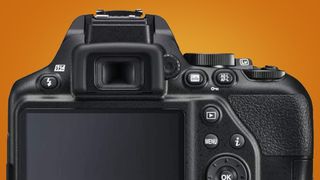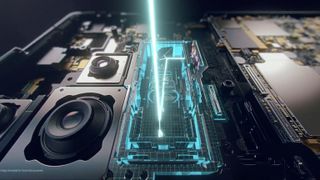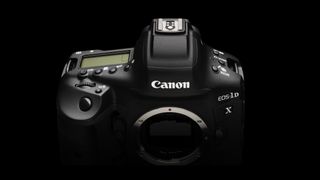The beginner DSLR has been a staple of Nikon and Canon’s camera line-ups for years, but this popular breed could soon be extinct according to hints from an official statement about the Nikon D3500 and D5600.
Last week, Nikon Rumors saw that the Nikon D3500 and D5600 – two aging, but still very capable entry-level models – have been listed on the Nikon Japan website as “old products”.
This often means that a product is heading for the ‘discontinued’ bin – and when we asked Nikon for official comment it gave us a more enlightening response than we expected.
Firstly, it confirmed that both cameras are definitely on their last legs in Japan. But it also gave strong hints that the demise of the beginner DSLR could soon be a worldwide trend.
In an official statement, Nikon told us: “Nikon Imaging Japan has decided to archive some digital SLR camera models based on market trends. In Japan, the D5600 and D3500 are archived products. The products will continue to be sold in countries and regions other than Japan.”
Interestingly, Nikon also added: “We plan to continue selling these products for the time being. For areas other than Japan, we will consider the optimal timing for discontinuation based on the needs of the market and customers.”
These statements contain two key things. The first is that the decision to archive both cameras in Japan is based on “market trends”. In other words, it’s highly unlikely that we’ll see replacement beginner DSLRs arrive to fill the gap left by the Nikon D3500 and Nikon D5600. If any successors are in the pipeline, they’ll likely be mirrorless models like the rumored Nikon Z30.
And the other interesting part for worldwide DSLR fans is that Nikon is only considering selling those cameras “for the time being”. Reading between the lines, that talk of “optimal timing for discontinuation” suggests that the axe will fall on the Nikon D3500 and D5600, and perhaps Nikon’s beginner DSLR lineup, sooner rather than later.
D-day for DSLRs?
So why is this happening? There’s no doubt that DSLR sales have been dropping sharper than other types of dedicated camera, and that’s saying something. According to figures from CIPA (the trade association for Japan’s photo industry), DSLRs had a year-on-year sales drop of 54% in September 2020.
Of course, a large part of that is down to the impact of the global pandemic and there have been some signs of recovery. But the overall trend for interchangeable lens camera sales has been a downward slope since the peak of 2012 – and DSLRs have been caught in a pincer movement between powerful smartphone cameras and the rise of mirrorless cameras.
The DSLR (Digital Single Lens Reflex) camera uses an older technology that sees light from its lens hit a mirror, which then bounces it up into an optical viewfinder. This approach still brings benefits that some photographers prefer.
But the DSLR’s bulky and increasingly dated tech has seen the world’s focus shift to all-digital mirrorless cameras (which, as their name suggests, don’t have that mirror-based viewfinder).
Beginner DSLRs like the Nikon D3500 and D5600 have been hit particularly hard, because they also have to contend with ludicrously capable smartphone cameras. Early smartphones weren’t considered a major threat to hobbyist cameras, because the limitations of their physical form seemed pretty insurmountable.
But then Google, Samsung and Apple plugged the immense power of their silicon and computational photography into the solving the problem, and we now have smartphones like the Samsung Galaxy S21 Ultra with large sensors, 10x optical zoom and processing smarts that make DSLRs look like dinosaurs from another era.
Despite all of this, it’s still a surprise to see a camera like the Nikon D3500, which still sits top of our guide to the best beginner DSLRs and in second place in our list of the best beginner cameras overall, earmarked for the chop.
But one additional factor may have hastened its demise – a huge factory fire in Japan recently left many camera manufacturers with shortage of parts.
Sony Europe told us it was “facing a severe shortage of key parts” and Nikon confirmed to us that the factory, AKM Semiconductor, is one of its suppliers. While this is only speculation, it could be another factor that has accelerated existing trends in the camera world.
Passing the baton
This doesn’t necessarily mean it’s the beginning of the end for all DSLRs. Professional sports photographers still swear by them, and one of the big reasons for that is the lack of viewfinder lag compared to mirrorless cameras.
As Canon told us at the launch of the Canon EOS 1D X Mark III last year: “With sport, it’s about speed, that moment. And electronic viewfinders have a lag. In SLR, you see everything in the speed of light. You can never be as fast as an SLR.”
If you want to read in detail why DSLRs are still so prevalent on the sidelines of sports events, you can read our in-depth piece on why the Canon EOS 1D X Mark III is a DSLR rather than a mirrorless camera.
But entry-level DSLRs like the Nikon D3500 and D5600 live in a very different world. Those advantages aren’t as useful for learner photographers, and their size makes them less attractive to photographers who are accustomed to great image quality from smaller form factors.
DSLRs do offer superior battery lives to mirrorless cameras and some still prefer their handling (along with the satisfying ‘thunk’ sound of their mirrors). But Nikon’s recent statement suggests its focus is now exclusively on its mirrorless Z-mount system and cameras like the Nikon Z6 II and Nikon Z50. That’s a shame, but as we’ve seen, also not an entirely surprising decision.



Comments are closed.